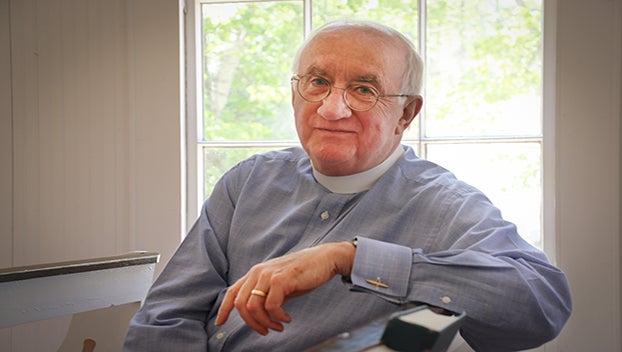On community: All our fictive kin
Published 12:41 pm Monday, February 5, 2018
In a 1968 Midwest college town, a white anthropologist named Carol Stack studied the culture and cycle of poverty in the black, inner-city community. She did what any good anthropologist does, she “embedded” herself as much as she could into that community. She chose not to speak only with the community leaders, like clergy and officials; she introduced herself to two ordinary families. As she spent more time with these families, she discovered circles of extended family or kin relationships throughout Jackson Flats — the fictitious name Stack gave to the black residential area — who utilized informal networks of exchange that were integral to the survival of the residents.
Essential goods, food and clothes, for example, and services such as child care, traveled along the tentacles of extended kin groups: mothers and grandmothers, sisters, aunts, nieces, families of uncles, brothers, nephews, and first, second and third cousins. What went around came around, and wealth became, in a sense, resources of kin groups. These groups were continually expanding through both sides of the family as well as entire families of children’s fathers. Stack found a common thread in this exchange system that included a parenting role for many of the females that were not biological mothers.
She also found that her own conception of family — two parents, siblings and maybe a grandmother or two, with periodic family reunions that brought together others — did not apply, and she had to let go of it to see the Jackson Flats model of family clearly. Stack was pregnant at the time her study began, and after she gave birth, she and her child became part of the child care system. Stack discovered there were other people in the networks without ties of blood or marriage who ended up serving family and parental roles. She ended up labeling these folks, herself included, fictive kin.
In “All Our Kin,” the book Stack wrote about her experience, she debunked the myth of a black culture and community held hostage by its own self-perpetuating cycle of victimhood. Instead, she found a vibrant and adaptive system of resilience around kinship that countered a lack of opportunity, high unemployment and racism.
The concept of family has deep roots in being human, and family systems can be found in all cultures and societies. But Stack’s work highlights the flexibility of the notion of family.
Other studies and experiences since Stack’s seminal book have shifted this notion of the importance of kin, blood and fictive relations from just race, or ethnicity, to also include a response to social class and poverty. Books like the recent bestseller “Hillbilly Elegy” remind us of the growing gulf between the haves and have nots in our towns and cities, and kinship is one of the survival mechanisms for the disadvantaged. Populations like those in recovery, or survivors of abuse, often constitute the powerless as well. More than occasionally, it is family and dysfunction that contribute to addiction or abuse. For these populations, Stack’s fictive kinship, playing on the trope of family, supplies the glue for what blood can’t or won’t provide.
I grew up in a tightly-knit Midwestern family of six siblings and two parents around the same time Stack was becoming part of another kind of family, with both types of family equally formative in providing love and support. The youngest of my family is now 53, the oldest in her mid-sixties, and we are spread out over the globe, as far as Singapore, and as close to me as Maine. Our extended families on both sides come together for weddings and funerals and occasional reunions. Certainly not a kinship model that would work in Jackson Flats, or for those in families torn apart by divorce, addiction or abuse, regardless of race or class. My sense of family is now just one of many that promote resilience across a community. For those who work in behavioral and public health and in service of non-profits administering to understanding with at-risk populations how kinship comes in all shapes and sizes, not necessarily reflective of one’s own family or extended relations, is important to providing support. It can also provide, as it did for Stack, a better appreciation of the roles many of us can fill as fictive kin to those we serve.
Robert Greene Sands is an anthropologist and CEO of the non-profit Pamlico Rose Institute for Sustainable Communities located in Washington, NC.





